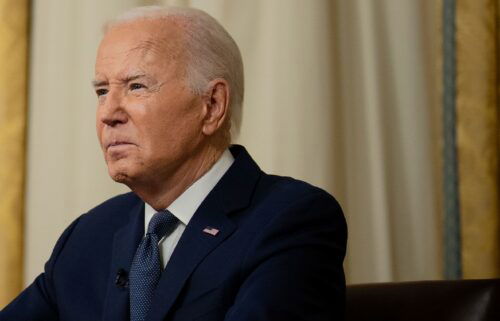Opinion: I’m a former Olympic swimmer who almost drowned as a child. It’s a preventable danger
(CNN) — After nearly drowning at the age of five, I could never have dreamt that one day I would swim competitively, let alone twice at the Olympics — or that I would become the first Black swimmer to hold a world record.
The incident happened, as these occurrences often do, in a setting where kids are supposed to have fun, on a water ride at an amusement park just outside of Philadelphia.
My parents were nearby and a lifeguard was on duty, but somehow the responsible adults lost sight of me long enough for me to end up underwater. I had to be resuscitated by a lifeguard and felt traumatized by the ordeal, but luckily didn’t suffer any long-term physical effects from it. And my parents wasted no time in signing me up for swimming lessons.
Grit and perseverance guided me to where I am today. Ultimately, my journey — like that of many swimmers competing at this summer’s Olympics in Paris — was only made possible by my ability to access a public pool. But that access did not come easy: I took two buses and traveled 30 minutes from my elementary school to the Rutgers Aquatic Center in Newark, New Jersey. It became my sanctuary from the gang violence and poverty-stricken area I grew up in.
Whether to prevent a near-drowning like mine or to cool off during increasingly hot summer months, accessible public pools are vital to the health of entire communities. Unfortunately, too many communities today lack an affordable community pool of their own.
Majority-Black communities continue to experience the legacy of structural racism from when pools were among the most segregated public places in our country. Many of the stigmas have emerged from that history and have become so deeply embedded in our culture that we even repeat them to each other: “You know Black people don’t swim!” is a phrase that many people in the community have internalized and tell each other — and ourselves — masking the systemic injustices around water access and safety that explain why so few of us become proficient swimmers.
Have you ever wondered why backyard pools became so popular? As Heather McGhee writes in her book, “The Sum of Us: What Racism Costs Everyone and How We Can Prosper Together”: “Millions of White Americans who once swam in public for free began to pay rather than swim for free with Black people.”
Today, there are more than 10 million private swimming pools in the United States, according to an industry trade group, compared with just over 300,000 public ones. “Public pools” includes those associated with schools, hotels and other exclusive community spaces, so the number of pools that are truly accessible to the public is even smaller.
In the 1960s, many public pools were filled with concrete or destroyed to avoid allowing Black Americans to swim in them. In fact, park managers opted to shut down the Historic Audubon Park Natatorium in New Orleans, the largest public pool in the South, rather than see it integrated. This is just one of many examples of how racism and discrimination led to the destruction and disinvestment of public pools, the consequences of which are still evident today.
The Centers for Disease Control and Prevention (CDC) reported in May that more than one-third (36.8%) of Black adults reported that they do not know how to swim, compared with 15% of all adults. Black children ages 10-14 years drown in swimming pools at a rate that is almost 8 times higher than White children. Income, too, plays a huge role in determining one’s ability to swim: A 2017 study from the USA Swimming Foundation found that 79% of children in families with incomes under $50,000 have no or low swimming experience.
These disparities are far from a coincidence; this is by design. In addition to limiting pool access, discrimination and disinvestment in majority-Black neighborhoods has led to food deserts and a lack of green spaces, community services and public gathering places — a gutting of what helps communities thrive.
For many people, what used to be considered “third places” — venues where individuals could spend time relaxing outside of the home and workplace — have become exclusive outposts easily accessible and adequately funded only in wealthier, White neighborhoods. Third places are incredibly important for public health and wellbeing however because they give people a place to socialize and build community.
Our communities deserve better. Lawmakers and community leaders should act on the CDC’s recent recommendation to build and revitalize public pools to increase access to swimming for all people. The answer is not another splash pad. The answer is increasing access both to pools and the safety programs and information that will keep kids safe when using them.
We also need better national data about our public pool system that goes beyond project- or funding-specific tracking. For example, while the Trust for Public Land’s mapping tool does a good job tracking pools that are federally funded through Community Project Funding grants, it doesn’t capture the number of free or low-cost public pools around the country.
Our summers are only getting hotter, and access to safe public pools — both as a public health necessity and source of joy in communities — should be the gold standard everywhere.
As you cheer on your favorite swimmers in Paris, think about what you can do in your community to ensure everyone feels the joy of swimming. Olympic medals might be for a privileged few, but everyone has a right to cool off and gain potentially life-saving swimming skills.
The-CNN-Wire
™ & © 2024 Cable News Network, Inc., a Warner Bros. Discovery Company. All rights reserved.

